-
FAQ
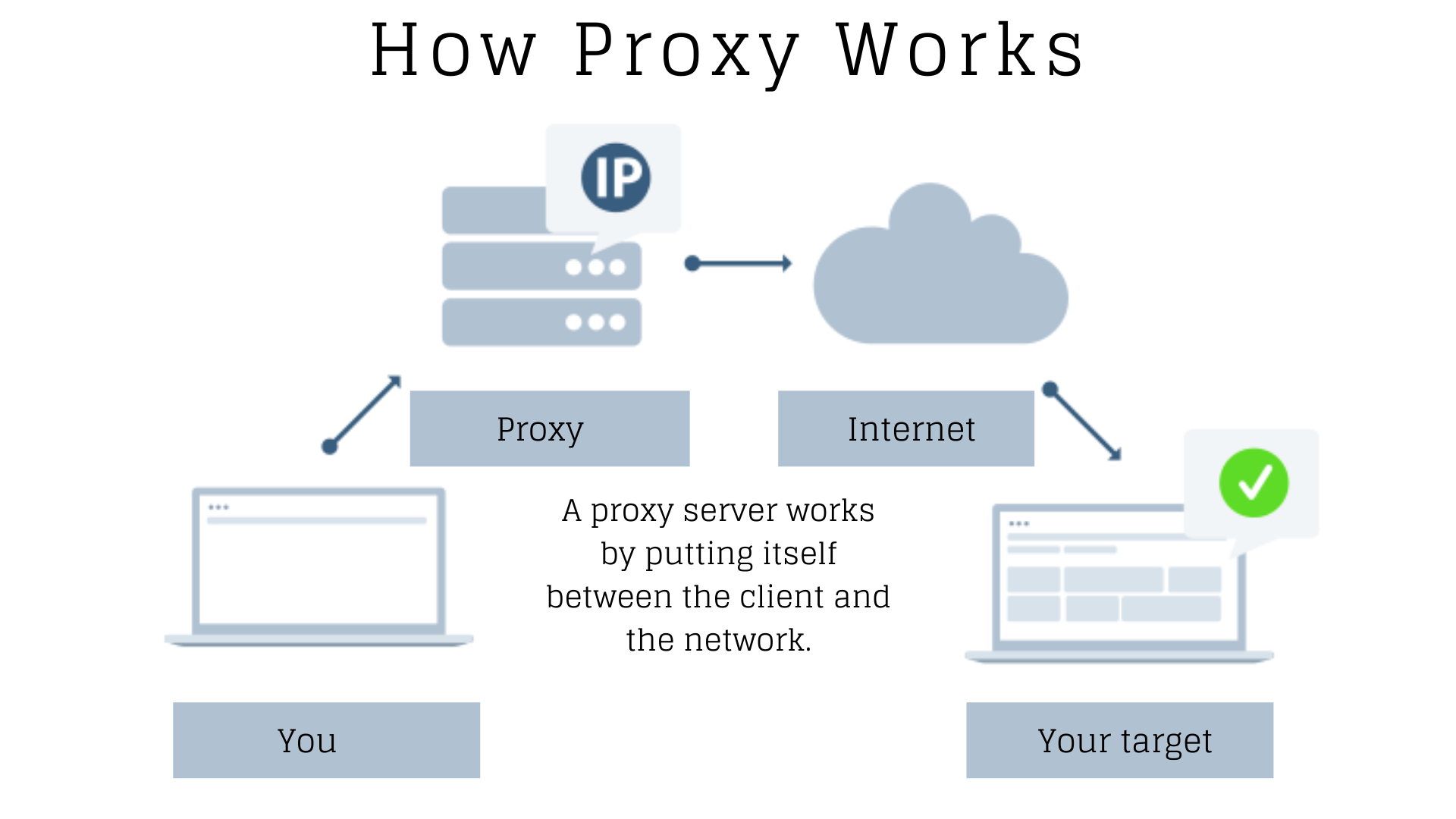
What is a proxy server?Proxy servers hide the IP address of a client from the Internet. These servers become an agent that takes a client’s request and passes it to the Internet destination and vice versa. When connected to a proxy server, traffic uses the proxy’s IP address, and not the clients. In essence, they…
-
Benefits of Proxy Server
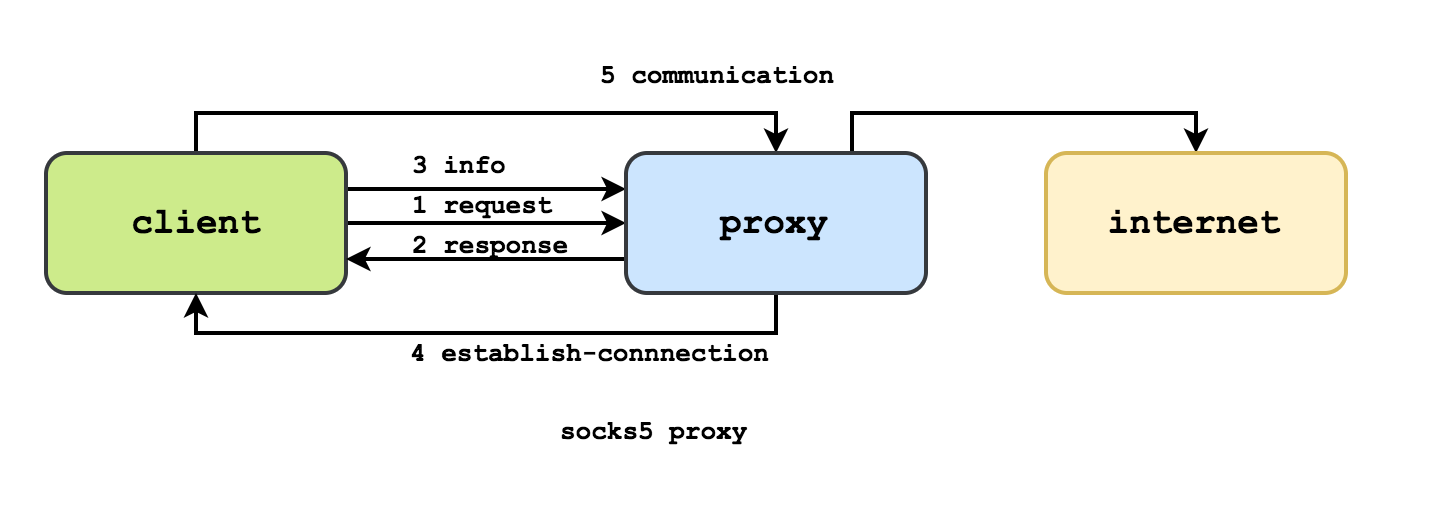
Better Data Security: Data breaches are becoming more common with time. Thus, organizations are trying their best to protect their data and employee These proxy servers will act as an additional security layer between outside traffic and your server. You should combine proxy servers with other security controls. Proxy Servers will ensure that you will…
-
Advantages of Using a Proxy Server
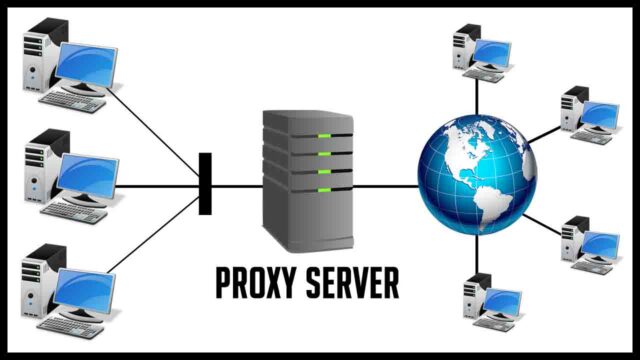
A proxy server functions as a connector or a middlemen between the web browser and the website, by passing the request and response back-and-forth in a way to assist users seeking resources from websites or servers Besides handling requests and responses, a proxy also fulfills other purposes, such as anonymous browsing, domain filtering, bypassing security…
-
Difference between a Proxy Server and VPN
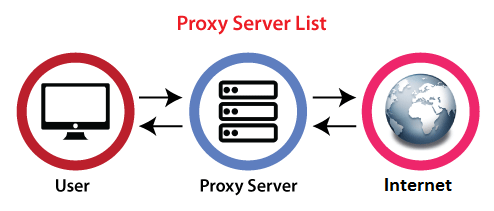
Differences between VPN and proxy server include: EncryptionEncryption is the crucial distinction between a proxy and a VPN. Proxy servers alter your IP address and do not encrypt your online activity. In contrast, VPNs encrypt all data you send and receive. Data encryption offers an added layer of security for important transactions like online banking…
-
Cons of a Proxy Server
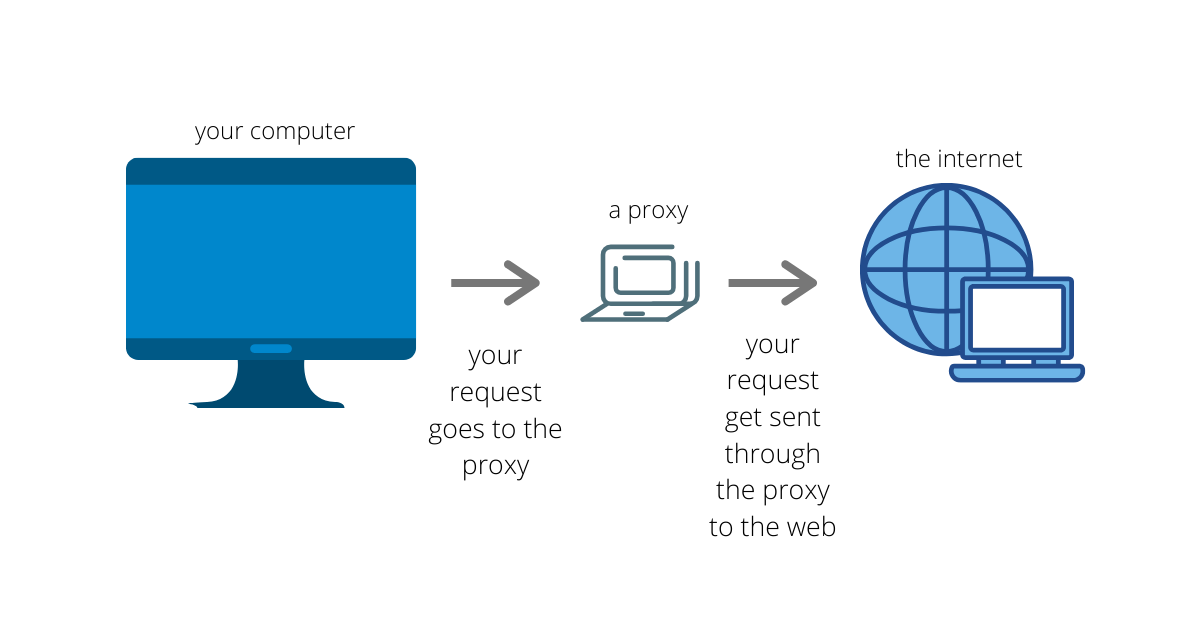
Unfortunately, proxies also have several disadvantages. These mostly have to do with the fact that a proxy is usually only half a solution: it doesn’t offer complete online anonymity or safety. We’ll explain this claim in more detail in the following sections. No complete anonymityLaptop no anonymityPrivate users of proxy servers are typically concerned with…
-
Proxy Servers

Proxy servers have two main purposes. They can improve performance and filter requests. By filtering requests, we mean an organization might use a proxy server to prevent its employees from accessing a specific set of Web sites. We are more concerned, for this experiment, in the first purpose of a proxy server, improving performance. Proxy…
-
Understanding Forward Proxies
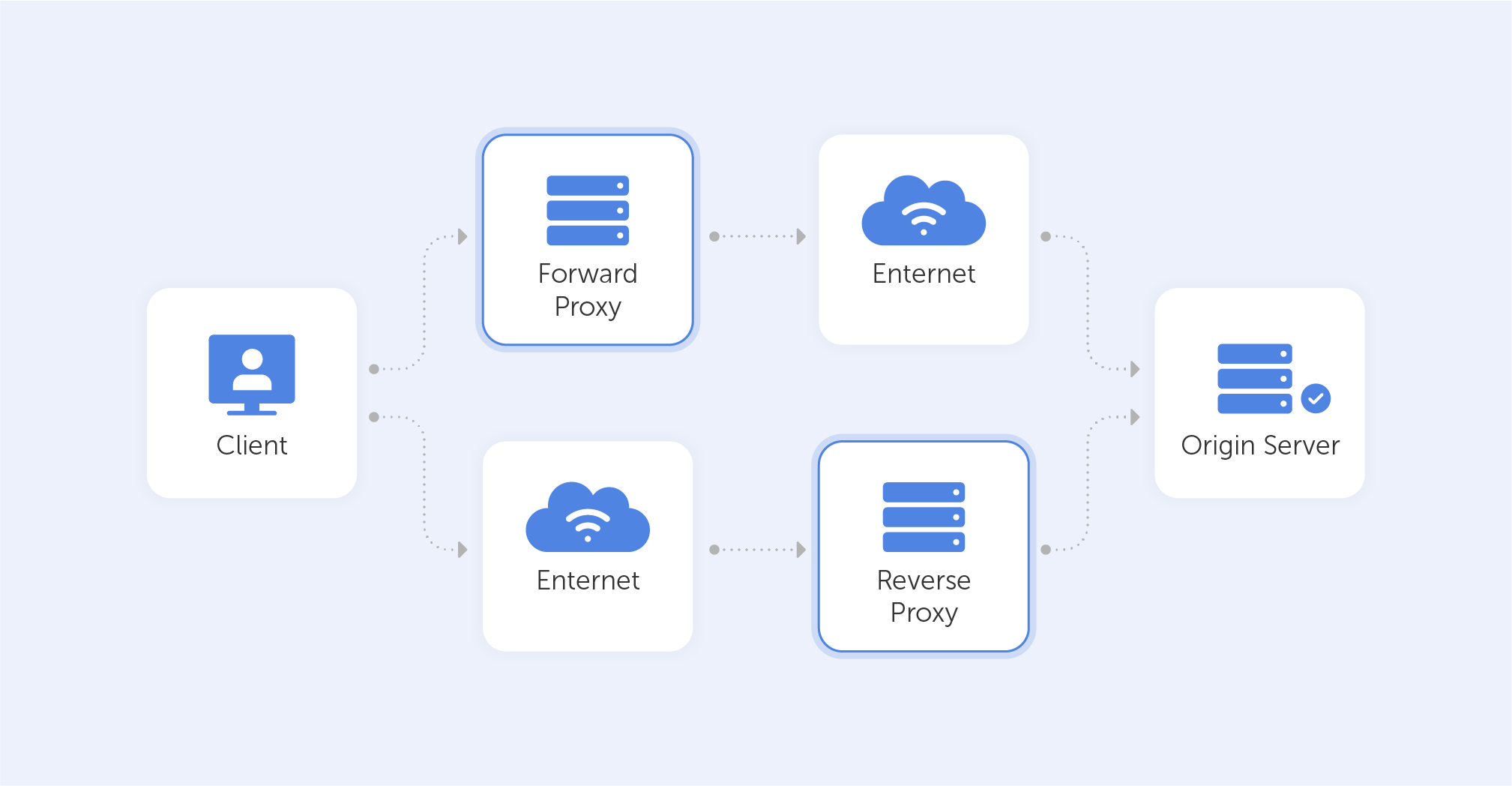
A forward proxy, also called an open proxy, acts as a representative for a client that is trying to send a request through the internet to an origin server. In this scenario, all attempts to send requests by the client will instead be sent to the forward proxy. The forward proxy, in the client’s stead,…
-
What are the main benefits of using a proxy server?
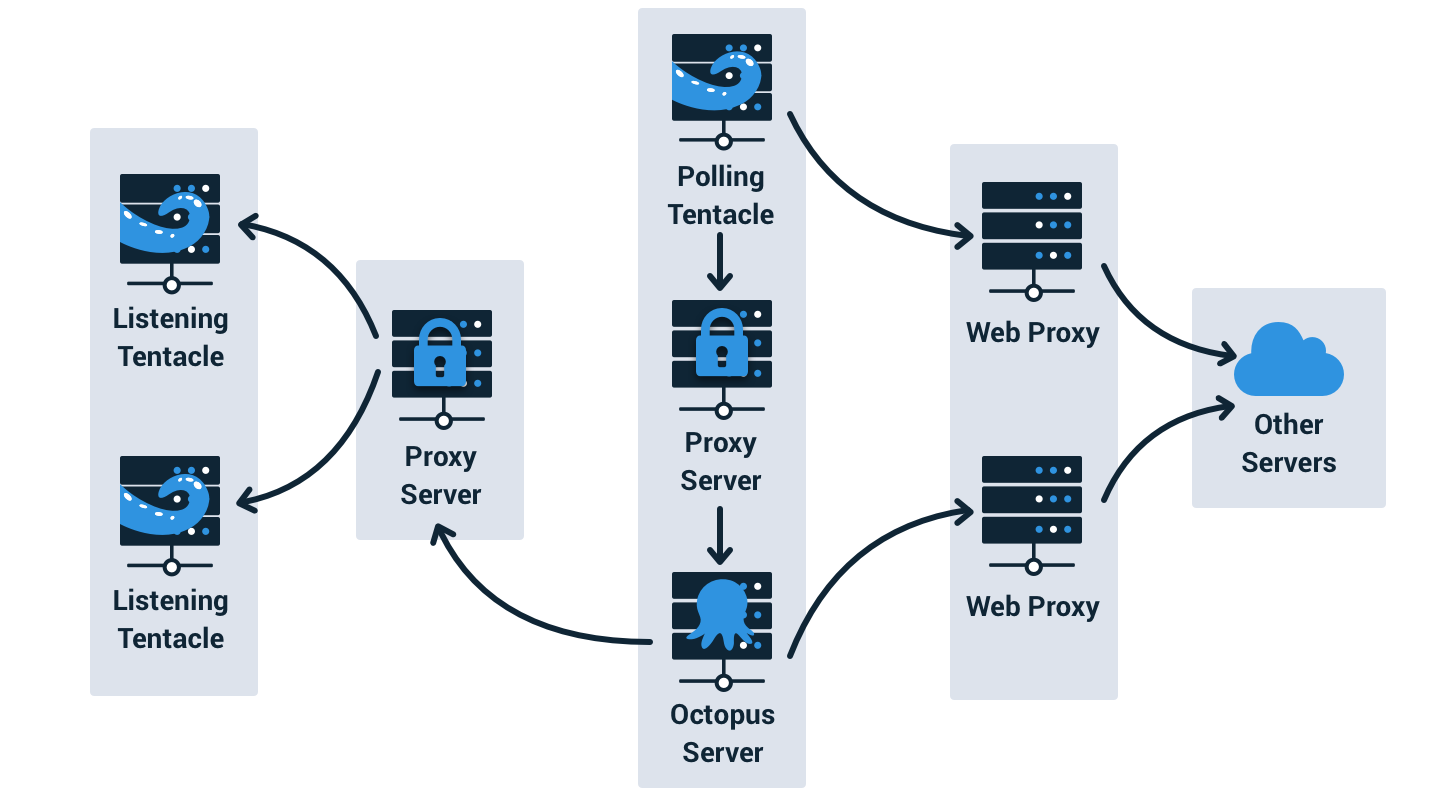
So, why use an HTTP proxy or other type of proxy server at all? Although they might not be the most airtight options for internet privacy, they’re still popular. Let’s explore why: You want control: There’s a lot of wild stuff out there on the internet. If you’re a parent looking to shield your young…
-
Forward proxy vs. reverse proxy

A forward proxy is the most common form of a proxy server and provides proxy services to either one or several clients. These clients often belong to a common internal network. In general, forward proxies are used to pass requests from a network to the internet via a firewall. The proxy server first checks whether…
-
Application purposes of proxy servers
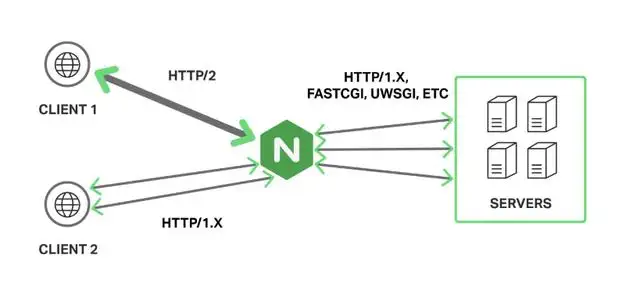
Depending on the configuration, proxies can perform various tasks. For example, they can be used to optimize load balancing in a network. To do this, the proxies distribute requests to a group of servers, improving capacity utilization and network performance. Proxies can also be used to control the available bandwidth. Furthermore, a proxy server can…